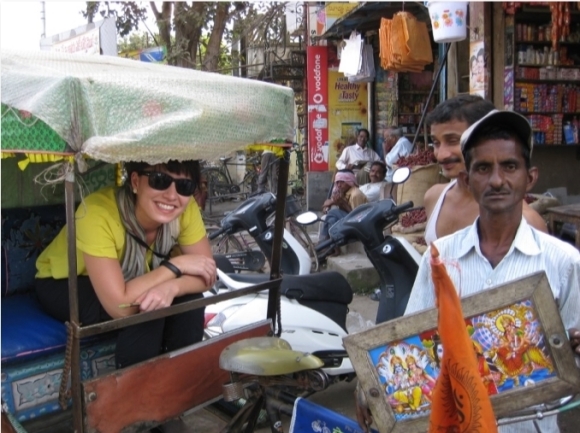The team, accompanied by the Byrraju staff, spent the morning in Bhimavaram City and the afternoon in a nearby village.
I’m a firm believer in experiential learning to anchor theoretical knowledge; a big shocker since I’m India. One of our required readings, Out of Poverty by Paul Polak, offers 12 “practical solutions to poverty” which include:
- Go to where the action is.
- Talk to people who have the problem and listen to what they have to say.
Sounds a lot like experiential learning, doesn’t it?
In my opening post, I talked about perceptual lenses and the importance of being mindful of them. Despite that awareness and the intent to be watchful, it took being out in the field to realize I was still looking through the the lens of my own context.
One of our survey questions was “If you were to dream of a much better life, what would that life look like?” I found the scale of dreams in the responses to be surprisingly small compared to what I realized later that I had been expecting. The rikshawala (rikshaw driver) we spoke to, for example, didn’t want to do anything else but keep pulling rikshaw for the rest of his life. Another person who had a water buffalo that produced income-generating milk, would have liked another water buffalo.
Try as I might, I could not get away from my own cultural context, expectations and assumptions. Perhaps it’s a function of the lifetime exposure to the halo effect of the American Dream. The underlying question I’ll be thinking about in the days to come is who decides whether the dreams expressed by these people are either appropriate or self-limiting?

Way to reference the reading material…pandering to Kim?? 😉
Mike,
I really appreciate your comments about viewing things through your own lens. I know that is something that you talked about in both the pre trip paper and your first post. I think the most important step to be taken when attempting to get outside one’s own head is to recognize what you are bringing to the table from a baggage standpoint. I have to work on this self awareness, but hope too that the rest of you can help me with noticing and improving my own self awareness.